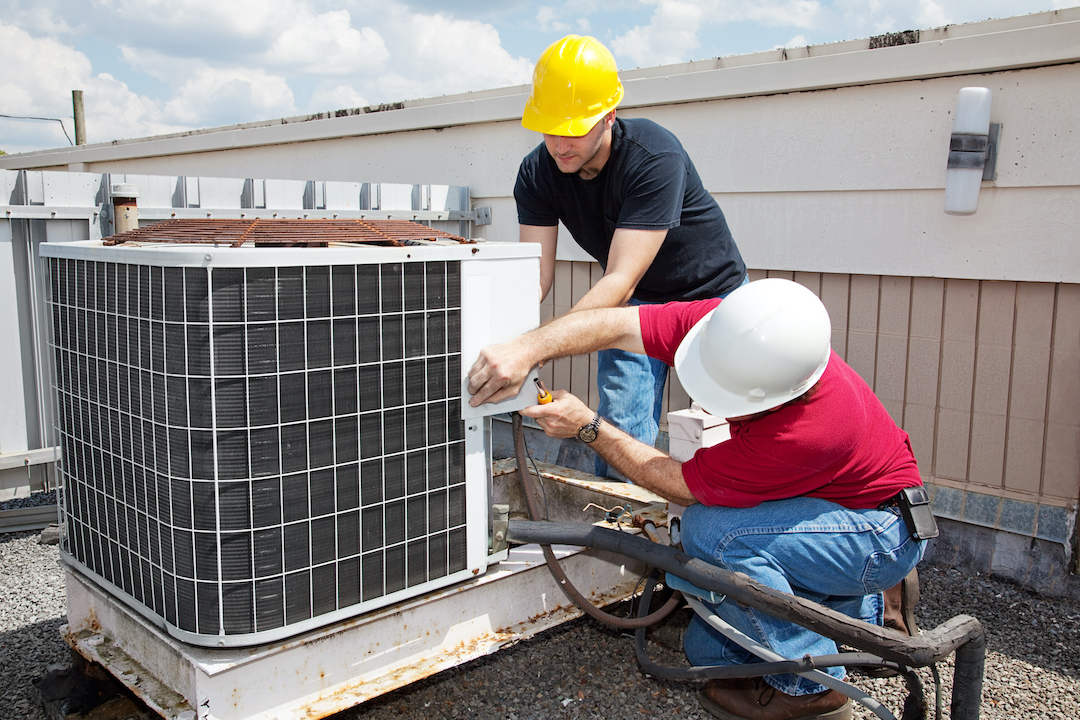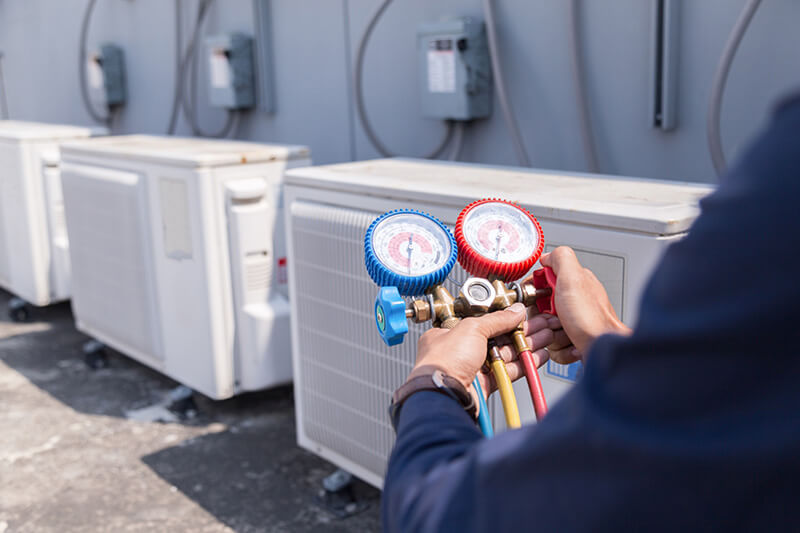5 Must-Know Facts About ductless mini splits Before You Upgrade
5 Must-Know Facts About ductless mini splits Before You Upgrade
Blog Article
Picking Between a Heatpump and Heating System: Key Considerations for Your HVAC Needs
When reviewing heating options for a/c requires, the choice between a heatpump and a heater can be complex. Each system uses unique advantages tailored to specific climates and power performance objectives. Recognizing these differences is essential for making an educated selection. Secret aspects such as installment prices and environmental influence additionally complicate the choice procedure. Which choice absolutely lines up with one's convenience and sustainability preferences? The complying with areas will discover these factors to consider in detail.
Comprehending Warm Pumps: Just How They Function and Their Advantages
While lots of property owners consider numerous home heating alternatives, recognizing exactly how heatpump function and their benefits can considerably affect their decision. Heatpump operate by moving warm instead of creating it. In the winter season, they draw out warm from the outdoors air or ground and transfer it inside, while in the summer season, they reverse this process, cooling the home by getting rid of warmth outside. This twin capability makes them versatile for year-round climate control.One of the main benefits of heatpump is their power effectiveness. They make use of significantly much less power contrasted to traditional furnace, possibly leading to reduced energy expenses (heat pump replacement ooltewah tn). In addition, heatpump have a smaller sized carbon impact, making them an eco friendly option. They additionally call for less upkeep than conventional systems, contributing to long-lasting expense savings. Generally, understanding the mechanics and advantages of warm pumps can aid home owners make educated decisions concerning their heating and cooling demands
Exploring Heating Systems: Kinds, Operation, and Advantages
Furnaces can be found in various types, including gas, electric, and oil models, each with distinct functional systems. Understanding these differences is essential, as they affect effectiveness and heating performance. Furthermore, heating systems use countless advantages, such as consistent heat outcome and dependability in cooler climates.
Sorts of Heaters
Heating unit can differ significantly in style and procedure, with heating systems being a popular choice amongst homeowners. There are several kinds of heating systems, each utilizing different gas sources and innovations. Gas furnaces prevail, leveraging all-natural gas to create warmth efficiently. Electric heating systems, on the various other hand, utilize electric resistance to create heat, frequently preferred for their simple installation. Oil furnaces, while much less common, are reliable in areas with minimal gas access (furnace replacement). In addition, condensing heating systems make the most of energy effectiveness by recycling and capturing exhaust gases. Each type runs through a system of warmth exchangers and ductwork to distribute warm air throughout a home. Understanding the distinctions between these heating system types is essential for educated HVAC decisions
Benefits of Heaters
For house owners looking for trustworthy warmth throughout chilly months, the advantages of heaters are considerable. Furnaces provide regular home heating, ensuring also temperature levels throughout the home. They are particularly effective in extreme chilly, typically exceeding heatpump in freezing problems. Different types, including gas, electric, and oil heaters, offer flexibility to fulfill varied requirements and preferences.Furnaces likewise often tend to have lower initial installation expenses compared to heatpump, making them a more available choice for several. Their robust layout adds to a longer life-span, with lots of systems lasting over 15 years with appropriate upkeep. In addition, modern-day furnaces are usually furnished with sophisticated innovation for enhanced performance, which can lead to decreased power bills. On the whole, heating systems continue to be a reputable selection for effective home heating.

Power Effectiveness: Comparing Warmth Pumps and Furnaces
When contrasting power efficiency in between heatpump and heating systems, the Seasonal Power Efficiency Ratio (SEER) plays a vital function in establishing efficiency. In addition, a functional price analysis discloses the long-lasting financial implications of each system. Recognizing these variables can lead home owners in making notified decisions regarding their home heating solutions.
Seasonal Energy Efficiency Proportion
Power efficiency plays an important duty in the decision-making process in between warmth pumps and heaters, particularly when considering the Seasonal Power Performance Ratio (SEER) This statistics actions the cooling efficiency of heatpump over a whole cooling period, giving a standardized method to review efficiency. Greater SEER rankings indicate higher energy effectiveness, equating to reduced power consumption and decreased energy bills. On the other hand, heating systems are usually assessed making use of the Annual Fuel Application Performance (AFUE) ranking, which reflects home heating efficiency. When contrasting these 2 systems, homeowners should prioritize SEER ratings for heatpump, as they straight influence overall energy cost savings and environmental sustainability. A comprehensive understanding of SEER can especially affect the long-lasting complete satisfaction and cost-effectiveness of blog the selected cooling and official source heating service.
Functional Price Evaluation
Recognizing the functional prices linked with heatpump and heaters is essential for property owners evaluating their alternatives. Warmth pumps commonly supply greater power performance, transforming electrical power right into warm with minimal waste. This leads to lower monthly utility bills, especially in modest environments. Conversely, traditional furnaces, specifically gas designs, may have reduced upfront prices however can sustain greater functional costs over time due to sustain rates and effectiveness ratings.Moreover, warmth pumps can work as both heating and cooling systems, possibly lowering the demand for separate a/c units. While preliminary financial investments for warmth pumps may be higher, their long-lasting savings in power performance can make them an extra cost-effective choice for several homes. Cautious evaluation of regional energy rates is vital to establish the most effective option.
Installation Costs: What to Anticipate for each and every Heating Unit
Installment expenses for furnace can differ substantially between heatpump and heating systems, affecting home owners' decisions. Heatpump generally have higher in advance setup costs, commonly ranging from $3,500 to $8,000, depending upon the system dimension and intricacy of installment. This includes the outdoor unit, indoor handling system, and essential ductwork modifications. On the other hand, heating systems have a tendency to have reduced preliminary expenses, averaging between $2,500 and $6,000, which can be appealing for budget-conscious house owners. Installment costs can boost if extensive ductwork is required.Moreover, the selection of fuel type for heaters-- natural gas, propane, or electrical-- can also affect installment prices. While warmth pumps use power performance, their preliminary financial investment may hinder some customers. Eventually, assessing installment prices together with lasting financial savings and effectiveness will certainly aid house owners in making educated choices regarding their heating systems.
Climate Factors To Consider: Which System Does Much Better in Your Area
How do environment conditions affect the performance of heating unit? The efficiency of heatpump and furnaces can vary greatly relying on the regional climate. In moderate environments, heatpump excel by efficiently moving warm from the outdoors air, making them an energy-saving choice. However, their efficiency decreases in incredibly chilly temperatures, where they may battle to draw out adequate heat. On the other hand, heating systems, specifically gas versions, provide trusted and consistent heat despite exterior problems, making them more suitable in chillier regions.In locations that experience milder wintertimes, warmth pumps can run properly year-round, offering both heating and cooling. On the other hand, regions with extreme winters typically profit from the robustness of heating systems. Ultimately, recognizing the local climate is important when determining in between a heatpump and a heater, as it directly influences their operational efficiency and total performance.
Upkeep Needs: Long-Term Look After Warm Pumps vs. Furnaces
While both heatpump and furnaces need normal maintenance to guarantee peak efficiency, their details needs and care regimens vary substantially. Furnaces commonly require less frequent interest, with annual assessments being enough to examine for gas leakages, clean filters, and assess total capability. Their less complex layout commonly permits uncomplicated repairs.In comparison, heatpump require semiannual upkeep due to their double function in heating & cooling. This consists of cleansing coils, checking refrigerant degrees, and making sure that both the outside and indoor systems function at their ideal. Additionally, heatpump upkeep commonly includes even more elaborate parts, making professional servicing essential.Neglecting upkeep can bring about diminished effectiveness and enhanced power expenses for both systems. Eventually, homeowners should take into consideration these long-lasting care needs when selecting between a warm pump and a furnace, as positive maintenance can extend the lifespan and efficiency of either system significantly.
Ecological Impact: Selecting a Lasting Home Heating Choice
The ecological effect of home heating systems is a critical evaluation for home owners seeking sustainable choices. Heat pumps are generally extra energy-efficient than typical heaters, as they transfer heat instead than create it, considerably view it lowering carbon emissions. By utilizing renewable resource sources, such as air-source or geothermal heat pumps, property owners can even more decrease their ecological footprint.On the other hand, gas heating systems emit greenhouse gases and contribute to air contamination, though they frequently offer greater warmth result. Innovations in modern technology have actually led to the advancement of high-efficiency furnaces that decrease emissions.Ultimately, choosing a heating system includes considering effectiveness versus environmental impact. Home owners are motivated to review local power sources and motivations for renewable systems, making certain an option that aligns with both individual convenience and ecological responsibility. The choice impacts not only instant comfort yet also long-lasting sustainability and ecological wellness.
Frequently Asked Concerns
The Length Of Time Do Warmth Pumps and Furnaces Usually Last?
The life-span of warm pumps usually ranges from 15 to twenty years, while furnaces can last in between 15 to 30 years. Routine maintenance considerably affects their durability and efficiency in providing heating options.
Can I Use a Warm Pump in Exceptionally Cold Climates?
Heatpump can run in exceptionally cold environments, but their efficiency diminishes as temperatures decline. In such conditions, supplemental heating sources might be essential to keep comfy indoor temperatures and ensure peak performance.

What Is the Sound Level of Warm Pumps Versus Furnaces?
The noise degrees of warmth pumps and furnaces differ significantly. Usually, heatpump run more silently than typical heating systems, making them more suitable for those delicate to appear, while heating systems may generate louder operational sounds during home heating cycles.
Are Warmth Pumps Suitable for Both Heating and Air conditioning?
Heat pumps are indeed appropriate for both cooling and heating (furnace replacement). They function by moving warmth, providing reliable temperature control year-round, making them a functional option for homeowners seeking an all-in-one cooling and heating service
What Dimension Heating System Do I Need for My Home?
Establishing the proper dimension furnace for a home requires examining factors such as square video, insulation high quality, regional environment, and the home's design. Consulting a specialist can assure a precise analysis and suitable convenience. Warmth pumps generally use higher energy efficiency, converting electric power right into heat with very little waste. In moderate climates, warmth pumps stand out by successfully transferring warmth from the outside air, making them an energy-saving alternative. Conversely, furnaces, specifically gas designs, give reputable and constant heat regardless of outdoor conditions, making them preferable in cooler regions.In locations that experience milder winters months, warmth pumps can run properly year-round, offering both heating and cooling. Warmth pumps are generally much more energy-efficient than standard heaters, as they transfer heat instead than create it, considerably lowering carbon emissions. By making use of renewable energy sources, such as air-source or geothermal warm pumps, home owners can better lessen their eco-friendly footprint.On the various other hand, natural gas heating systems give off greenhouse gases and add to air pollution, though they usually provide higher warmth result.
Report this page